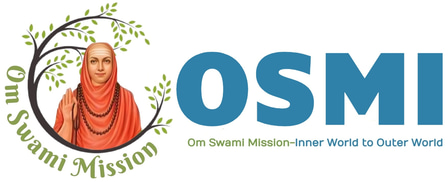Understanding Meditation- Part 1
More than the practice, knowledge about meditation and understanding its intricacies and maneuvering it is of utmost importance than the practice. Practice without knowledge leads nowhere.


Meditation can be understood as a psychological process that trains the mind to focus on a specific object. The essence of concentration holds greater significance than the object itself. It represents a distinct state of consciousness, transcending mere relaxation. Meditation is more closely related to awareness than to the relaxation of the mind. It is not solely a spiritual endeavor; rather, it is a logical outcome of human existence. Initiating meditation requires a foundation of knowledge and skill. In the early stages, having an object of focus is essential, but as one progresses to higher levels of consciousness, this object may no longer be necessary. As understanding deepens, consciousness expands. This growth in knowledge is reflected not only in mental awareness but also in one’s actions. Ultimately, the highest form of consciousness is what truly matters, as it is synonymous with the divine. Meditation serves to transform the ordinary consciousness experienced in daily life through the energy waves generated during the practice. A fitting analogy is the fire produced from logs; the quality of the flame varies depending on the type of logs used. Dry logs yield a clean flame, while wet logs produce soot. Although both scenarios involve fire, the quality differs, and a knowledgeable individual can discern between the two based on the flame's characteristics. Similarly, the outcomes of meditation are influenced by the quality of the practitioner, which is determined by their ability to concentrate the mind's activities on a single object.
A comprehensive exploration of the process of meditation will be presented, categorized into three main areas: theory, practice, and outcomes. Understanding the principles of meditation and its complexities is more crucial than the act of practicing itself. Engaging in meditation without a solid foundation of knowledge is unproductive. It is important to note that meditation does not require renouncing one's identity; rather, it is about redefining it. The meditation process occurs within the mind, which serves as a powerful yet subtle instrument that can lead to both pleasure and pain. It is not feasible to completely silence or eliminate the mind during meditation, as a fully functioning mind is essential for survival. Effective meditation involves persistent efforts to refine the mind beyond its ordinary functions. A mind that has undergone this refinement can become a creator. This transformation is gradual and relies on continuous practice and commitment. Through effective meditation, ignorance is dispelled, illusions are shattered, and the Ultimate Reality is comprehended. This Ultimate Reality represents the conscious union between the meditator and the focus of meditation, achieved through the meditative process. Meditation serves as the pathway to realizing this Reality, facilitated by the gradual development and maturation of the mind. In the Bhagavad Gita VI.35, Krishna states, “The mind is undoubtedly restless and challenging to control. However, it can be mastered through consistent practice.” He further emphasizes in the subsequent verse that “Yoga is challenging to achieve for those whose minds are not subdued. Yet, for those who have control over their minds and are persistently striving, it can be attained with ease through practice. This is my firm belief.” At this juncture, two critical factors are essential for initiating this journey: one is knowledge.
